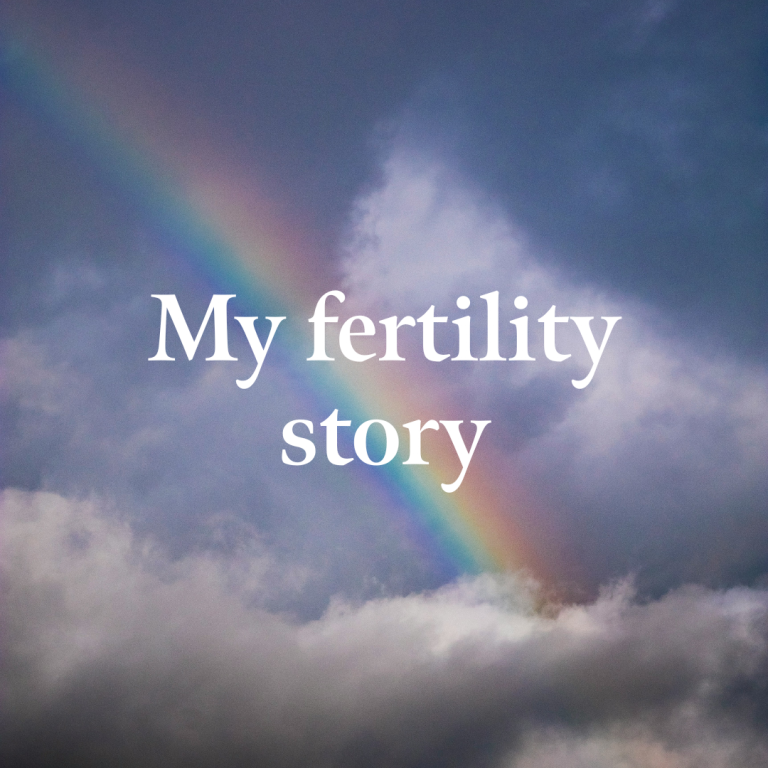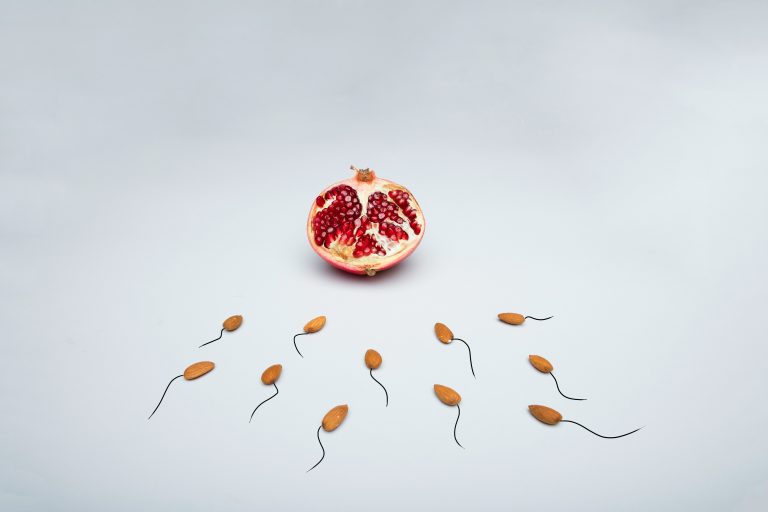

Last year I decided to freeze my eggs. At the time I was 35, in a new relationship and with the knowledge that my mum went through an early menopause (an indication that I might too). It was a decision I didn’t take lightly – the cost on my body, time and bank account were all factors, but in the end I concluded that this was something I was very unlikely to regret doing, and was more likely to regret not doing.
I know this is a topic that sparks a lot of questioning and debate, so I want to share my experience, as well as the dietary and lifestyle changes I made to best prepare for and recover from the procedures. A big caveat: everyone is unique and will have their own story when it comes to egg freezing, and this is mine. I also know from personal experience how triggering the topic of fertility can be – so if this is the case for you, I understand, and hope this doesn’t add to any stress or anxiety.
The clinic
So I’d decided to freeze my eggs, but then came another hurdle – how to choose a clinic? Deciding on a clinic can be overwhelming, not least because most fertility clinics look exactly the same from their websites (lots of pictures of babies and names like ‘Care’, ‘Nurture’ and ‘Joy’). I looked at a few different clinics in my local area, compared price, success rates and had two different online consultations with consultants. It’s not just about success rate (though obviously this is important, statistics can be misleading!) – for me, the location and the staff were also big factors. I went to an open evening to meet the team and ask questions of the doctors, which I’d highly recommend doing. The HFEA (the UK’s fertility regulator) also gives some really helpful advice on choosing a clinic here.
The process
The process of egg freezing is exactly the same as in vitro fertilisation (IVF), until after egg retrieval – then, rather than being fertilised by sperm and implanted into your uterus, your eggs make their way to the big freeze where they wait patiently for the time to come when they might be thawed and fertilised.
First, the clinic carried out blood tests (including anti-müllerian hormone (AMH) to give an indication of egg reserve) and an antral follicle count to check the number of follicles, which is done with an internal ultrasound. I then saw a consultant who advised on the best treatment for me based on those results. From there it was full steam ahead – they sent me a big box of hormones through the post, showed me how to inject them, and told me to notify them when it was day 1 of my cycle.
The process itself involved daily hormone injections in the tummy or thigh, a few ultrasound scans, and one very bloated stomach. I had heard varying accounts of how other people had responded, but overall, I felt surprisingly fine. Yes, the injections were a bit fiddly and sometimes sore, there were many hours of driving up and down the M1 to scans, and I didn’t feel fantastic, but I was fascinated by the whole process of seeing my body respond to the hormones and watching my follicles growing with every scan.
Usually egg collection occurs around day 14, when your eggs are looking nice and juicy. The procedure takes about 20 minutes and is done under sedation. Recovery for me was ok – I felt bloated, emotional, and a bit sore, but after a day of hot water bottles, rest on the sofa, and rubbish TV I was pretty much back to normal (perhaps evidenced by the fact that after my first egg collection I went wild camping and hiking in the Welsh Black Mountains two days after the procedure!).
Diet and lifestyle
It takes about 90 days for an egg to develop, so three months before the egg collection I made some changes to my diet and lifestyle to try and improve my egg quality. I cut out alcohol and caffeine, and focused even more on eating a colourful diet high in plant foods and low in refined carbohydrates and saturated fat, with plenty of the good stuff like antioxidants, lean protein, healthy fats and low refined carbs. The Mediterranean diet is the most widely researched diet when it comes to fertility, which consists of an abundance of different plant foods (like fruits, vegetables, grains, beans, nuts, legumes, olive oil, seeds, herbs and spices), a moderate amount of fish and seafood, some poultry, eggs, cheese and yoghurt, and a small amount of meats and sweets.

There can be a lot of pressure to eat ‘perfectly’ during this time, but I believe it’s about doing the best you can in your particular circumstances. Yes, I had the occasional treat while I was preparing for egg freezing, and made sure I really enjoyed it! My advice to anyone going through it would be to be kind to yourself, as restriction and diet anxieties will likely only lead to higher stress levels, which definitely aren’t helpful either. Nourish your body with the plant foods that you love – the more whole and the less processed your diet, the better.
Lifestyle also matters, so leading up to treatment I started acupuncture, and tried to reduce the stress load on my body – which for me meant avoiding things like HIIT and fasting, which are likely to produce stress hormones like cortisol (not helpful for fertility!). I focused on prioritising sleep, as well doing some gentle exercise like yoga, walking and pilates. Again, high stress levels are sometimes unavoidable, so I think it’s just about doing the best you can.
Supplements
Reading about fertility supplements can be particularly overwhelming as well, with so many different products out there. The current research is mixed on the effectiveness of supplements but at the very least, it’s helpful to take a folate / folic acid and vitamin D supplement. I always advocate for a ‘food first’ approach, but I also believe supplements have their place. As a minimum I would recommend taking Vitamin D3 and folic acid, and then, if you can afford it, choose a few good quality supplements on top that support you during this time. If you can’t, don’t stress. I took the following supplements for the three months leading up to egg collection:
- Prenatal multivitamin (Terranova’s Prenatal Complex) – I chose this because it had 400 micrograms of folate (the natural form of folic acid, recommended in pregnancy to reduce the risk of neural tube defects in the foetus). It also contained choline, another good nutrient for foetal health.
- Vitamin D3 (Terranova’s Vitamin D3 2000 Complex) – this promotes reproductive health, and the NHS recommends a supplement during pregnancy of at least 400ius (10mcg).
- CoQ10 (Terranova’s CoQ10 100mg) – research suggests this antioxidant may help with egg quality, reduce oxidative stress and improve clinical pregnancy rates.[1]
- Fish oil (Viridian’s organic Rainbow Trout Oil) – I take this anyway but continued through this process as omega 3 fatty acids help with inflammation levels and egg quality.
- I also took Rheal Superfoods’ Balance Tonic, which contains ashwagandha, maca, blueberry and hibiscus to help support stress levels.
- Bone broth (Planet Paleo Ancient Mushrooms Bone Broth) – to provide nourishment and protein during this time.
- After the egg collection, I took turmeric (Terranova’s Fermented Turmeric) for a few days to help with inflammation levels.
Final thoughts
For me, this was a really empowering process that I feel lucky to have been able to go through. Yes, it was in parts stressful, painful and challenging for my physical and mental health (and I hope I never to have to go through those daily injections again!), but overall I felt amazed by what my body was able to do and was so proud of its resilience.
While I’m aware that freezing my eggs can’t guarantee me having children in the future, I feel like this has given me some comfort and reassurance that I didn’t have before. And if I never have to use my eggs because I conceive naturally, that’s fantastic too.

It can be easy to get caught up in the fertility hysteria, which unfortunately a lot of brands and businesses take advantage of. Around this time, my Instagram ads were filled with fertility test kits and supplements, a depressing consequence of my search history no doubt. If you find yourself going down a fertility rabbit hole on Google (yes, I’ve been there!), step away from your phone, take a deep breath, and focus on the things that are within your control. I found that concentrating on my diet and lifestyle during this time was something really positive that I could do to improve my fertility and general health, and for me, that’s always going to be a good thing.
My advice for anyone considering or going through the process:
- Will it be worth it for you? Consider the strain on your body, the time commitment, the cost. The average cost for a round of egg freezing is around £4,000-6,000, with ongoing costs for egg storage which is usually done on an annual basis. It is definitely a commitment of time, not just for the 2 weeks of injections, but for the period leading up to it (and I believe it’s worth investing in this time to do everything you can from a diet and lifestyle perspective). Also don’t underestimate the impact on your body – daily hormone injections, plus invasive scans and at the end of it, a medical operation, which is not without risk.
- Choose your clinic carefully. Ask questions, go to open evenings, get a feel for the place. Look at their reviews. Read the HFEA’s advice on choosing a clinic here.
- Sadly, egg freezing is not a guarantee of a baby. Be prepared that even after going through the process, it might not be successful. Research shows that the older you get, the less your chances of success. One study[2] (shared with me by my consultant) found that women age 34, 37 or 42 years, each with 20 mature eggs frozen, would be expected to have a 90, 75 and 37% likelihood of having at least one live birth, respectively. Speak to your consultant about this and they should be able to advise you on the number of eggs you can expect to get based on your age and test results.
- Do your own research. Speak to people who’ve been through it. Forums and online groups can be helpful for this. Use that advice to inform your own decisions, rather than dictate them. The BBC have a new documentary called Egg Freezing and Me, which is worth a watch.
- If you do decide to go ahead, avoid drastic or dramatic health plans that promise amazing results, especially if they involve cutting out food groups. For me, inclusion is better than exclusion – focusing on all the amazing foods that you can eat rather than those that you can’t.
- And most importantly: Listen to your own body. It is a stressful time for your body – so this is definitely a time to be selfish, say no to things you don’t want to do and put yourself first. Eat foods that nourish you, focus on sleep and doing movement that feels good to your body.
If you have any questions about any of this, please do get in touch – I’d be happy to hear from you and have a chat about my experiences.
Please note, this blog should not be taken as medical advice, and the supplements recommended may not be suitable for everyone, especially if you’re on prescribed medication. If you have any health concerns about your cycle or fertility, please consult a medical professional.
References
- Florou P, Anagnostis P, Theocharis P, Chourdakis M, Goulis DG. Does coenzyme Q 10 supplementation improve fertility outcomes in women undergoing assisted reproductive technology procedures? A systematic review and meta-analysis of randomized-controlled trials. Journal of assisted reproduction and genetics. 2020 Oct;37:2377-87.
- Goldman RH, Racowsky C, Farland LV, Munné S, Ribustello L, Fox JH. Predicting the likelihood of live birth for elective oocyte cryopreservation: a counseling tool for physicians and patients. Human reproduction. 2017 Apr 1;32(4):853-9.




